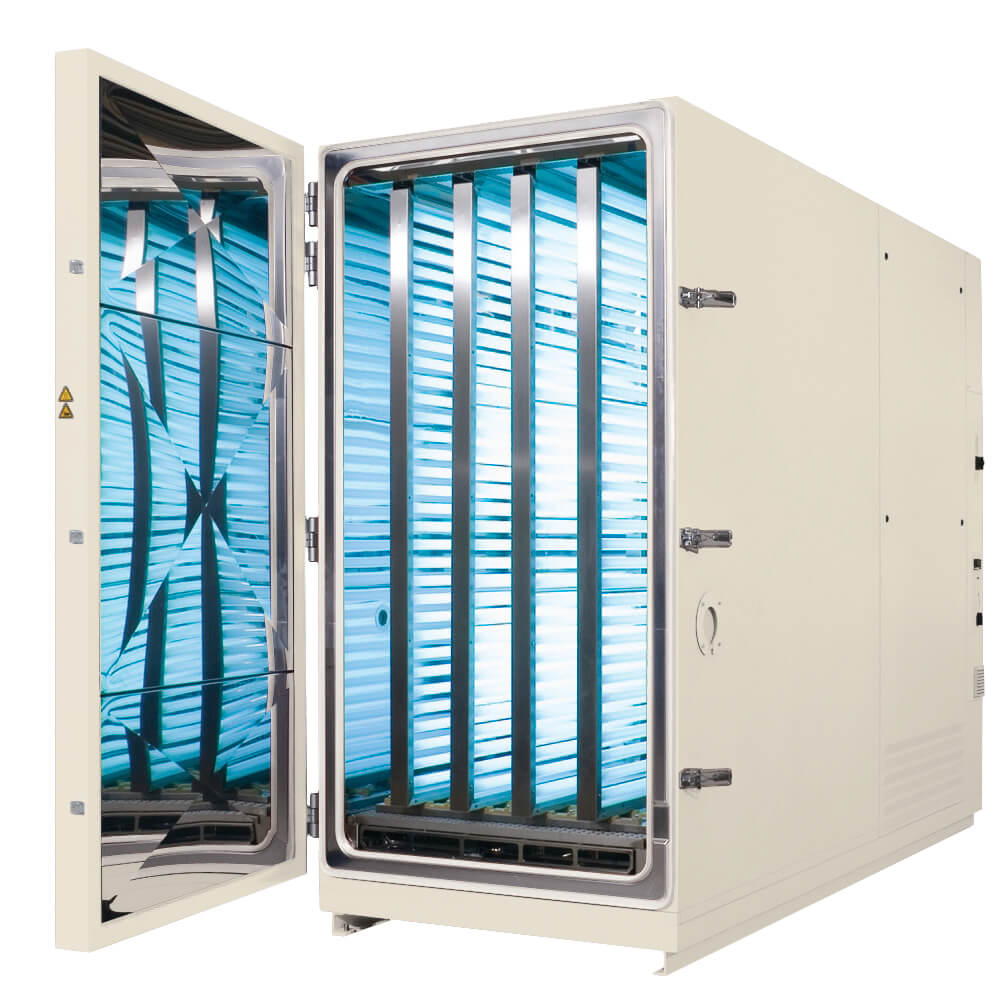

Environmental Test Chamber
An Environmental Test Chamber (also known as a climatic chamber or climate chamber) is a controlled enclosure used to test the effects of environmental conditions—such as temperature, humidity, and pressure—on various products and materials. In the photovoltaic (PV) industry, these chambers are essential for simulating aging and extreme operating conditions to validate module durability, safety, and performance.
🌡️ Purpose of Environmental Test Chambers in PV Testing
These chambers simulate real-world stress factors to assess how PV modules perform over time. Tests typically follow international standards like IEC 61215, IEC 61730, and others.
🔬 Common Environmental Tests for PV Modules
| Test Name | Conditions Simulated | Purpose |
|---|---|---|
| Damp Heat (DH) | 85°C and 85% relative humidity for 1000 hours | Tests for delamination, corrosion, PID, and moisture ingress |
| Thermal Cycling (TC) | -40°C to +85°C for 200–600 cycles | Simulates temperature fluctuations day/night or seasonal cycling |
| Humidity Freeze (HF) | Damp heat followed by freezing (-40°C) | Detects moisture freeze-thaw effects on materials |
| UV Exposure | Intense UV radiation (UV-A and UV-B) | Tests yellowing, cracking, and material aging due to sunlight |
| Mechanical Load Test (ML) | Positive and negative pressure loading (up to 5400 Pa) | Simulates wind, snow, and static mechanical stresses |
| Salt Mist Corrosion Test | Salt spray and humid conditions | For coastal environments; tests corrosion resistance |
| PID (Potential-Induced Degradation) | High voltage + humidity + heat | Simulates degradation caused by high system voltages |
🧪 Key Components of an Environmental Test Chamber
-
Temperature Control System: Heaters and chillers to simulate extreme hot/cold conditions.
-
Humidity Control: Steam generators or dehumidifiers to maintain desired RH%.
-
Air Circulation Fans: Ensure uniform conditions across the chamber.
-
Sensors and Controllers: Precisely regulate and log environmental parameters.
-
Safety Features: Over-temperature protection, emergency shutdown, alarms.
🏭 Chamber Types in the PV Industry
| Chamber Type | Use Case |
|---|---|
| Temperature/Humidity Chambers | For DH, TC, and HF tests |
| UV Weathering Chambers | For accelerated sunlight exposure |
| Thermal Shock Chambers | For rapid hot-cold transitions |
| Salt Spray Chambers | For corrosion testing |
| Dust and Sand Chambers | For desert simulation |
📏 Example Test Standards (IEC)
-
IEC 61215 – Design qualification and type approval of crystalline silicon PV modules
-
IEC 61730 – PV module safety qualification
-
IEC 62716 – Ammonia corrosion testing
-
IEC 61701 – Salt mist corrosion
-
IEC TS 62804 – PID testing

